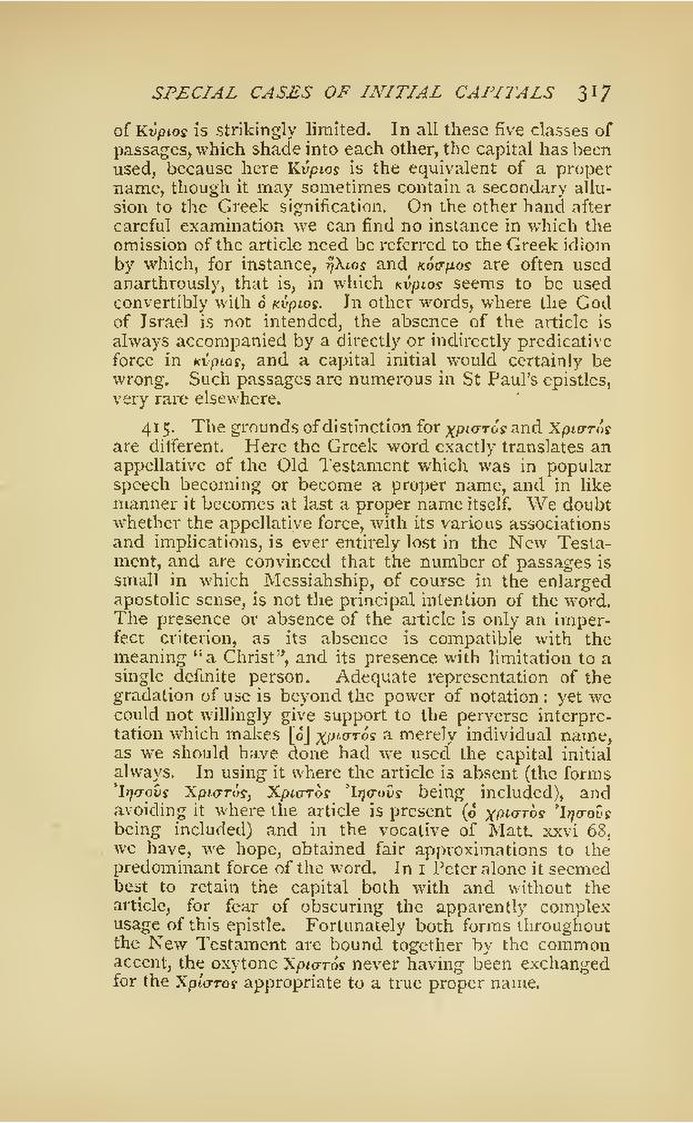of Κύριος is strikingly limited. In all these five classes of passages, which shade into each other, the capital has been used, because here Κύριος is the equivalent of a proper name, though it may sometimes contain a secondary allusion to the Greek signification. On the other hand after careful examination we can find no instance in which the omission of the article need be referred to the Greek idiom by which, for instance, ἥλιος and κόσμος are often used anarthrously, that is, in which κύριος seems to be used convertibly with ὁ κύριος. In other words, where the God of Israel is not intended, the absence of the article is always accompanied by a directly or indirectly predicative force in κύριος, and a capital initial would certainly be wrong. Such passages are numerous in St Paul's epistles, very rare elsewhere.
415. The grounds of distinction for χριστός and Χριστός are different. Here the Greek word exactly translates an appellative of the Old Testament which was in popular speech becoming or become a proper name, and in like manner it becomes at last a proper name itself. We doubt whether the appellative force, with its various associations and implications, is ever entirely lost in the New Testament, and are convinced that the number of passages is small in which Messiahship, of course in the enlarged apostolic sense, is not the principal intention of the word. The presence or absence of the article is only an imperfect criterion, as its absence is compatible with the meaning "a Christ", and its presence with limitation to a single definite person. Adequate representation of the gradation of use is beyond the power of notation: yet we could not willingly give support to the perverse interpretation which makes [ὁ] χριστός a merely individual name, as we should have done had we used the capital initial always. In using it where the article is absent (the forms Ἰησοῦς Χριστός, Χριστὸς Ἰησοῦς being included), and avoiding it where the article is present (ὁ χριστός Ἰησοῦς being included) and in the vocative of Matt. xxvi 68, we have, we hope, obtained fair approximations to the predominant force of the word. In 1 Peter alone it seemed best to retain the capital both with and without the article, for fear of obscuring the apparently complex usage of this epistle. Fortunately both forms throughout the New Testament are bound together by the common accent, the oxytone Χριστός never having been exchanged for the Χρίστος appropriate to a true proper name.
